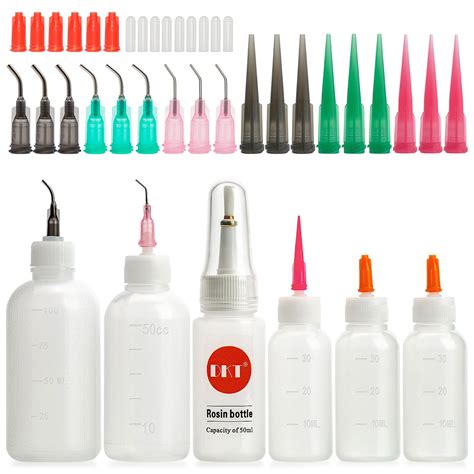In today's world of precision and attention to detail, the art of bonding has become an essential aspect of various industries, including crafting, DIY projects, and even medical applications. Among the numerous tools and techniques used for bonding, the needle glue applicator stands out for its precision and ease of use. In this article, we will delve into the world of needle glue applicators, exploring their benefits, types, and applications, as well as provide tips for effortless bonding.
What is a Needle Glue Applicator?

A needle glue applicator is a specialized tool designed to apply precise amounts of adhesive to specific areas. It typically consists of a handheld device with a thin, needle-like tip that dispenses a controlled amount of glue. This tool is ideal for delicate or intricate work, such as bonding small components, repairing fragile materials, or creating detailed crafts.
Benefits of Using a Needle Glue Applicator
The use of a needle glue applicator offers several advantages over traditional glue application methods:
- Precision: The thin needle tip allows for precise application of glue, reducing waste and minimizing the risk of accidents.
- Control: The user has complete control over the amount of glue dispensed, ensuring that only the desired amount is applied.
- Versatility: Needle glue applicators can be used with a variety of adhesives, including hot glue, epoxy, and cyanoacrylate.
- Ease of use: The tool is relatively simple to operate, making it accessible to users of all skill levels.
Types of Needle Glue Applicators

There are several types of needle glue applicators available, each with its unique features and applications:
- Manual applicators: These are handheld devices that require the user to manually dispense the glue by squeezing a trigger or pressing a plunger.
- Pneumatic applicators: These tools use compressed air to dispense the glue, providing a more consistent and controlled application.
- Battery-powered applicators: These devices use a rechargeable battery to power a small motor that dispenses the glue.
- Specialized applicators: There are also specialized needle glue applicators designed for specific industries or applications, such as medical or industrial use.
Applications of Needle Glue Applicators
Needle glue applicators have a wide range of applications across various industries and hobbies:
- Crafting: Needle glue applicators are ideal for crafting and DIY projects, such as making jewelry, repairing toys, or creating intricate designs.
- Medical: In medical applications, needle glue applicators are used for bonding tissues, repairing medical devices, or applying adhesives for wound care.
- Industrial: In industrial settings, needle glue applicators are used for bonding components, repairing equipment, or applying adhesives for manufacturing processes.
- Electronics: Needle glue applicators are used in electronics for bonding components, repairing circuits, or applying adhesives for insulation.
Tips for Effortless Bonding with Needle Glue Applicators

To achieve effortless bonding with needle glue applicators, follow these tips:
- Choose the right adhesive: Select an adhesive that is suitable for the material you are working with and the desired bonding strength.
- Prepare the surface: Clean and prepare the surface before applying the adhesive to ensure a strong bond.
- Use the right needle size: Choose a needle size that is suitable for the application and the amount of adhesive required.
- Apply gentle pressure: Apply gentle pressure to the needle to avoid applying too much adhesive or creating bubbles.
- Work in a well-ventilated area: Work in a well-ventilated area to avoid inhaling fumes from the adhesive.






What is the difference between a manual and pneumatic needle glue applicator?
+A manual needle glue applicator requires the user to manually dispense the glue by squeezing a trigger or pressing a plunger, while a pneumatic applicator uses compressed air to dispense the glue.
Can I use a needle glue applicator for bonding plastics?
+Yes, needle glue applicators can be used for bonding plastics, but it is essential to choose the right adhesive and follow the manufacturer's instructions.
How do I clean and maintain my needle glue applicator?
+Regularly clean the needle and nozzle with a soft brush and mild soap, and dry thoroughly to prevent clogging.
We hope this article has provided you with valuable insights into the world of needle glue applicators and their applications. Whether you are a crafter, DIY enthusiast, or industrial user, a needle glue applicator can be an essential tool in your arsenal. By following the tips and guidelines outlined above, you can achieve effortless bonding and take your projects to the next level.
